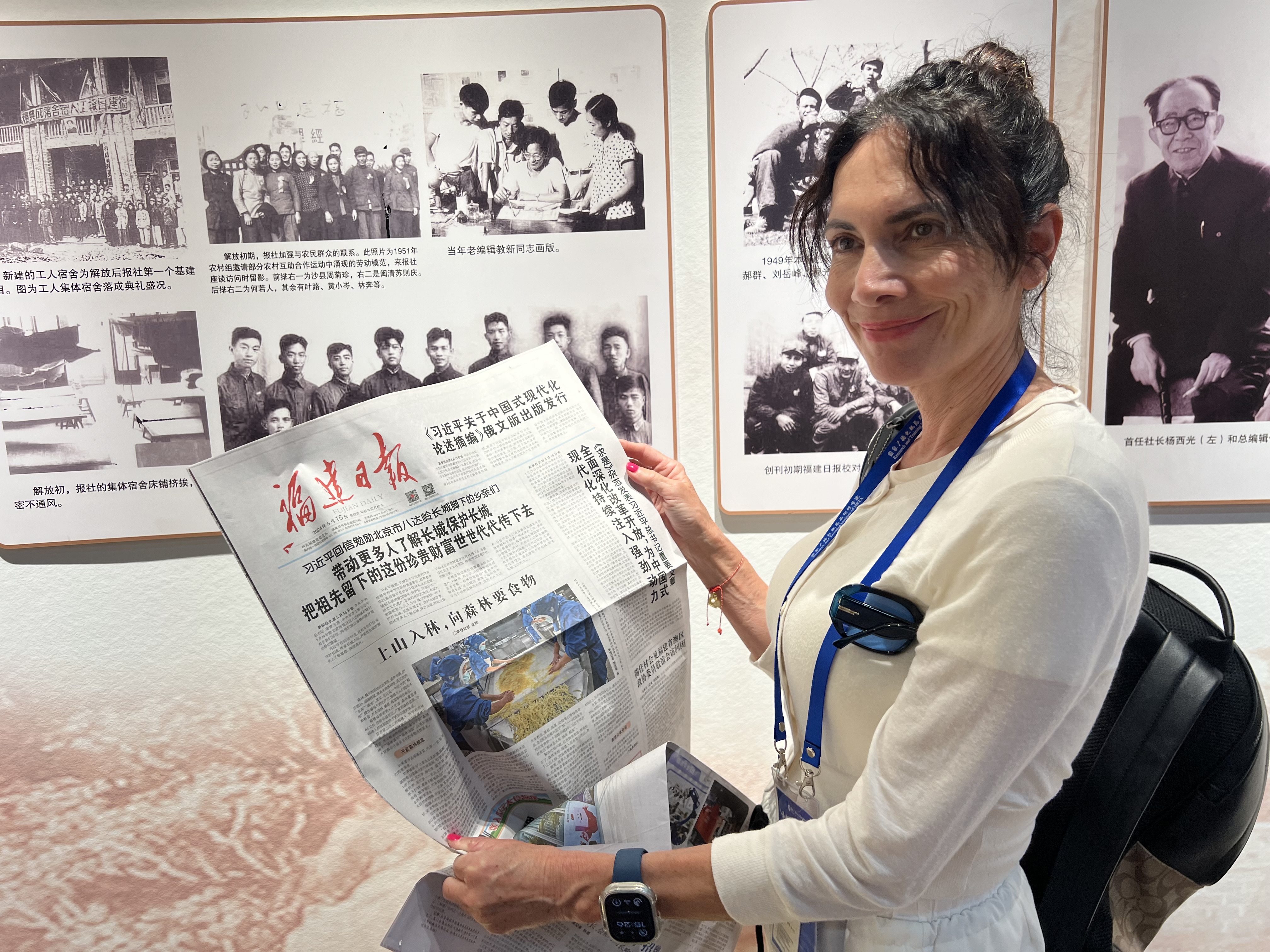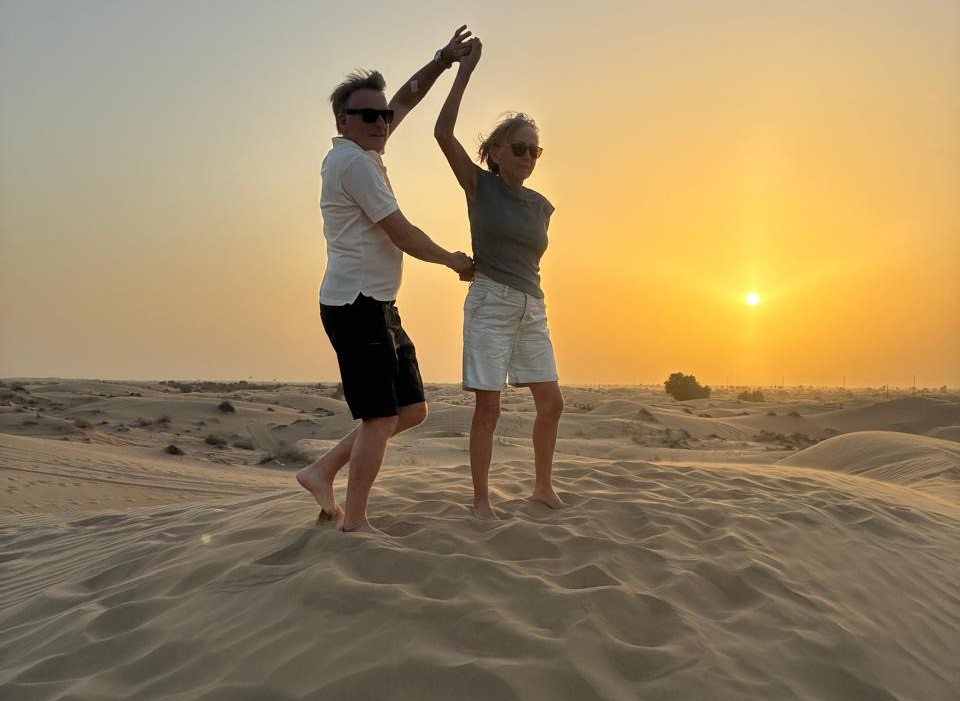A special editorial on democracy, harmony, and the shared wisdom of two ancient civilisations
This special publication forms part of the Mirror of Culture – an ongoing editorial initiative co-developed by the Cyprus Mail and the Embassy of the People’s Republic of China in Cyprus. As a project dedicated to exploring the cultural parallels between two ancient civilisations, Mirror of Culture brings together artisans, musicians, philosophers, artists and scholars from both nations. Each feature offers a lens through which the heritage, traditions, and wisdom of China and Cyprus are mirrored – illuminating not only their distinct identities but also their shared values.
This particular branch of the initiative brings focus to two timeless pillars of civilisational thought: democracy and harmony. What do the sun-washed agora of ancient Athens and the shade-dappled courtyards of Confucius’ Lu State have to say to one another across centuries and continents? At first glance, they appear to belong to different worlds – one echoing with open debate, the other guided by disciplined moral enquiry. But look more closely, and we discover a dialogue long in the making. Both cultures, in their own language and form, sought to answer the same fundamental questions: how should we govern ourselves? and how can we live in balanced relationship with one another and with nature?
Democracy’s Deep Foundations
Democracy is too often told as a story rooted solely in the Athenian experiment. The essays presented here challenge that narrative by placing it in conversation with Chinese thought. Long before votes were cast on the Pnyx, Confucian teachings reminded rulers that “the people are valued more than the ruler,” and that “water can carry a boat, but it can also capsize it.” These proverbs reflect a deep understanding of governance as a moral contract – sustained only through the consent and welfare of the people.
Similarly, Plato’s philosopher-king and Aristotle’s idea of the polity explored how governance might balance wisdom, virtue and representation. Their views, when mirrored with Confucian meritocracy – where leadership is earned through moral cultivation rather than birthright – reveal a surprising philosophical symmetry. Leadership, in both traditions, is not the right to rule but the responsibility to serve and to listen. In this comparative space, we find a deeply relevant lens through which to reflect on the structures of governance today.
Harmony as Ethical Compass
Where democracy explores structure, harmony reflects atmosphere – a principle that permeates all aspects of life. From Pythagoras’ belief that “harmony sustains all things” to Confucius’ teachings on ren (benevolence), ancient thought in both cultures envisioned balance not as a luxury but as a necessity for human flourishing.
The parallels are striking. Plato’s vision of a just society and Aristotle’s eudaimonia – the ideal of virtuous living – resonate with Confucian ideals that place harmony at the centre of both private and public life. From the triad of self, family, and state to the holistic integration of individual conduct with societal wellbeing, harmony is shown not as passive agreement but as the active orchestration of difference into coherence. In our time, where fragmentation often replaces consensus, these lessons offer not only historical insight but ethical guidance.
A Living Dialogue
That such meaningful dialogue continues to flourish today is the result of longstanding ties between Cyprus and China, grounded not only in diplomacy but in shared respect for civilisational heritage. It is no coincidence that this cultural conversation is unfolding between China – whose ancient Silk Road once connected worlds – and Cyprus, the eastern-most Mediterranean gateway, a meeting point of empires and ideas for thousands of years.
This project would not have been possible without the committed partnership of the Embassy of the People’s Republic of China in Cyprus, and the vision and personal support of His Excellency Liu Yantao, whose role in fostering intercultural understanding is deeply appreciated. We also extend sincere thanks to the contributors from both nations – distinguished academics, writers and researchers – whose intellectual generosity and insight are the lifeblood of this publication.
The content of these pages is crafted for readers who navigate today’s complex world with curiosity and a desire for deeper perspective. Whether you are a policymaker, educator, entrepreneur, or cultural observer, we hope these reflections spark further thought – on leadership that serves, on harmony that endures and on the power of ancient wisdom to shape a more balanced future.
Culture has always been a mirror in which nations see themselves. Through the Mirror of Culture, we place two mirrors face-to-face – creating a corridor of reflection, resonance and exchange. In that corridor, China and Cyprus do not merely observe each other’s histories; they co-author a narrative of mutual respect, learning and continuity.
As a proud member of the Cyprus Mail team, I extend my deepest gratitude to everyone who brought this vision to life. Your commitment to bridging nations through knowledge, dialogue and shared tradition gives this edition its purpose – and its promise.






Click here to change your cookie preferences